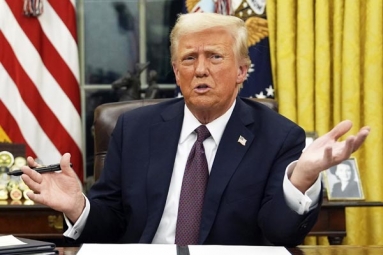
(Image source from: Aspioneer.com)
Delhi sero survey results convey that about 47 lakh people in the National Capital have already been affected. CM Kejrriwal says that herd immunity could be approaching. What actually is it?
A recent sero survey in Delhi found the presence of antibodies in 23% of the samples tested. From this, it is evaluated that 46 lakh people have already been affected by novel coronavirus.
Chief Minister Arvind Kejriwal had said that herd immunity could be approaching. Scientists however, caution against drawing such conclusions without proper research.
What is serological survey?
The survey is meant to test if the person being tested has developed antibodies for coronavirus. Antibodies are proteins produced by the immune system to fight external organisms like viruses and bacteria.
These antibodies are produced only after the infection has occurred, specifically after 2 weeks. So, the presence of antibodies indicates that the person has already been affected by the virus.
As many of the patients are not showing any symptoms of coronavirus, it is particularly difficult to test everyone. So, detection of antibodies is an indirect way of estimating the number of people affected by coronavirus in any area.
In Delhi, in 21000 samples that were tested for antibodies, about 23% have turned out to be positive. That also indicates that 14% of Delhi population already had coronavirus.
The results indicated that the spread of the disease is wider than that being officially put up by the officials.
Do antibodies ensure immunity?
Scientists say that the mere presence of antibodies does not guarantee immunity against the virus. It is also important to consider the number of antibodies present in the body.
Scientists have said that only neutralizing antibodies can produce immunity against the coronavirus and not all.
However, serological surveys do not assess the number of antibodies present in the body. They only answer a yes or no. Several scientists after research predicted that neutralizing antibodies lose power within 4 months and the chances of re-infection are also high.
What is herd immunity then?
Herd immunity is that stage in an epidemic that certain percent of population remain protected from the virus because majority of them already developed immunity either through vaccination or due to the presence of neutralizing antibodies.
So, everyone in the group need not be affected before the pandemic gets over. Once a certain number of people in the community develop infection and build antibodies, the pandemic becomes to slow down and eventually stop.
The problem is no one knows how much percentage of population needs to get infected before the herd immunity to come in.
In general and referring to other pandemics, scientists say that herd immunity only kicks in after at least half of the population is infected by the virus.
In case of measles, herd immunity has been achieved only after 85 to 90% of the population has been detected with the virus.
So, herd immunity in Delhi city being achieved is pointless according to scientists. Herd immunity can be achieved in isolated groups and not in places like Delhi where people are roaming freely.
Therefore, only after this coronavirus pandemic subsides can one calculate the herd immunity among populations.
By Gayatri Yellayi






















